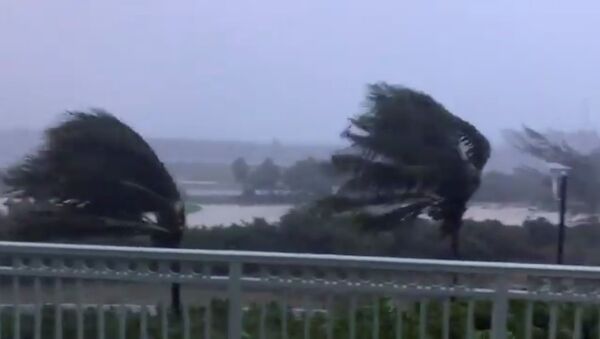According to the NHC, Isaias is expected to “bring strong winds and heavy rainfall from the eastern Carolinas to the mid-Atlantic coast” as a Category 1 hurricane on Monday and Tuesday. The latest data by the NHC shows that the hurricane’s maximum sustained winds have been measured at 70 mph.
— National Hurricane Center (@NHC_Atlantic) August 3, 2020
— National Hurricane Center (@NHC_Atlantic) August 3, 2020
“On the forecast track, the center of Isaias will pass well east of the Georgia coast through this afternoon. The center of Isaias will then approach the coasts of northeastern South Carolina and southern North Carolina within the hurricane warning area this evening. The center will then move inland over eastern North Carolina tonight, and move along the coast of the mid-Atlantic states on Tuesday and into the northeastern United States Tuesday night,” the NHC reported Monday.
A hurricane warning has been issued for parts of the Carolinas including Myrtle Beach, South Carolina, and Wilmington, North Carolina, and storm surge warnings have also been issued in the Carolinas. Furthermore, tropical storm warnings have been issued as far north as coastal Massachusetts, and tropical storm watches have been issued as far north as Maine.
The latest forecast by the NHC also predicts that the storm will quickly move northeastward toward higher parts of the Eastern Seaboard, reaching as far north as New England on Tuesday or Wednesday.
Isaias brought heavy rain and flooding to Florida over the weekend. However, the tropical storm posed less of a threat than initially expected as it swirled just offshore the central coast of Florida.
— Elaine Viets (@evmysterywriter) August 2, 2020
— CIRA (@CIRA_CSU) August 2, 2020
— Ishaan Singh (@machinemavrik) August 1, 2020
— Patrick Dove (@DovePhotog) August 2, 2020
On Monday, Florida Governor Ron DeSantis called the storm “a good trial run for what will likely be a busy hurricane season,” the Orlando Sentinel reported.
“We will hope for the best, but we absolutely need to be prepared for more storms,” he added.
Isaias caused at least two deaths in the Dominican Republic and knocked out power for thousands of people in Puerto Rico while moving through those areas late last week.

